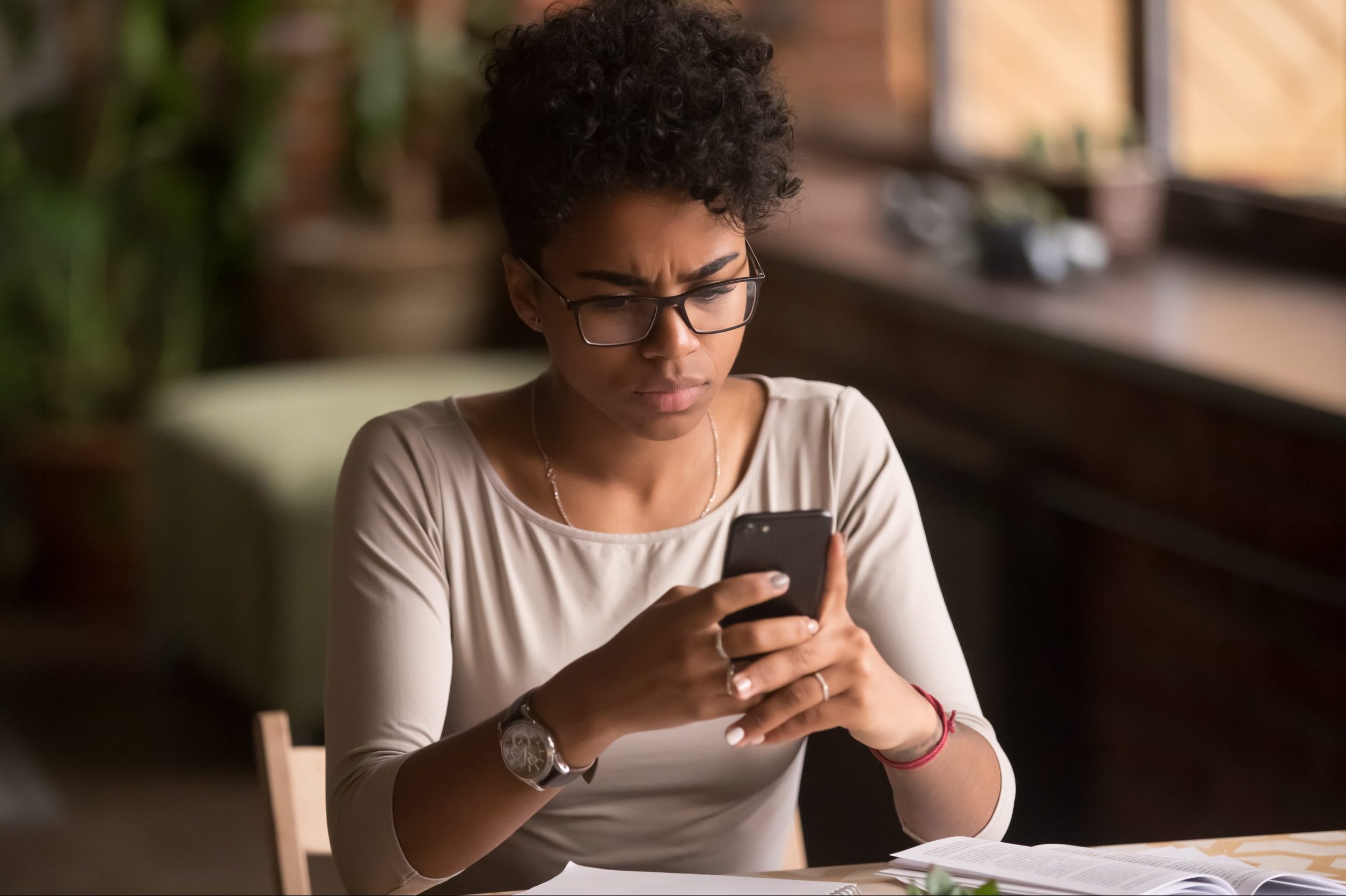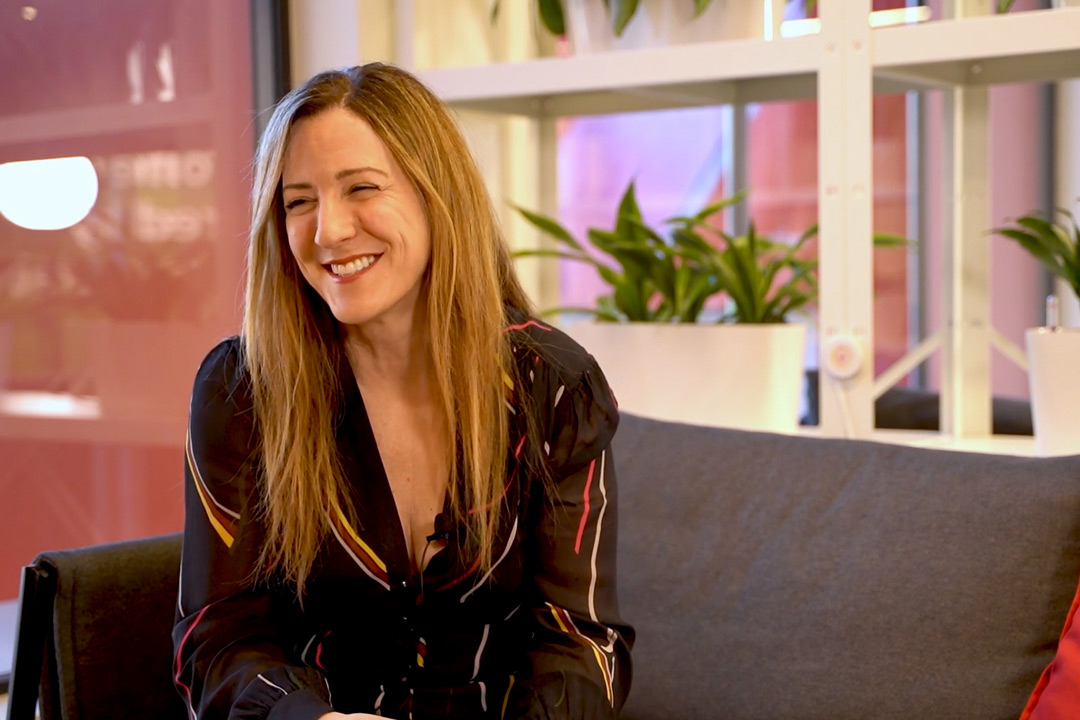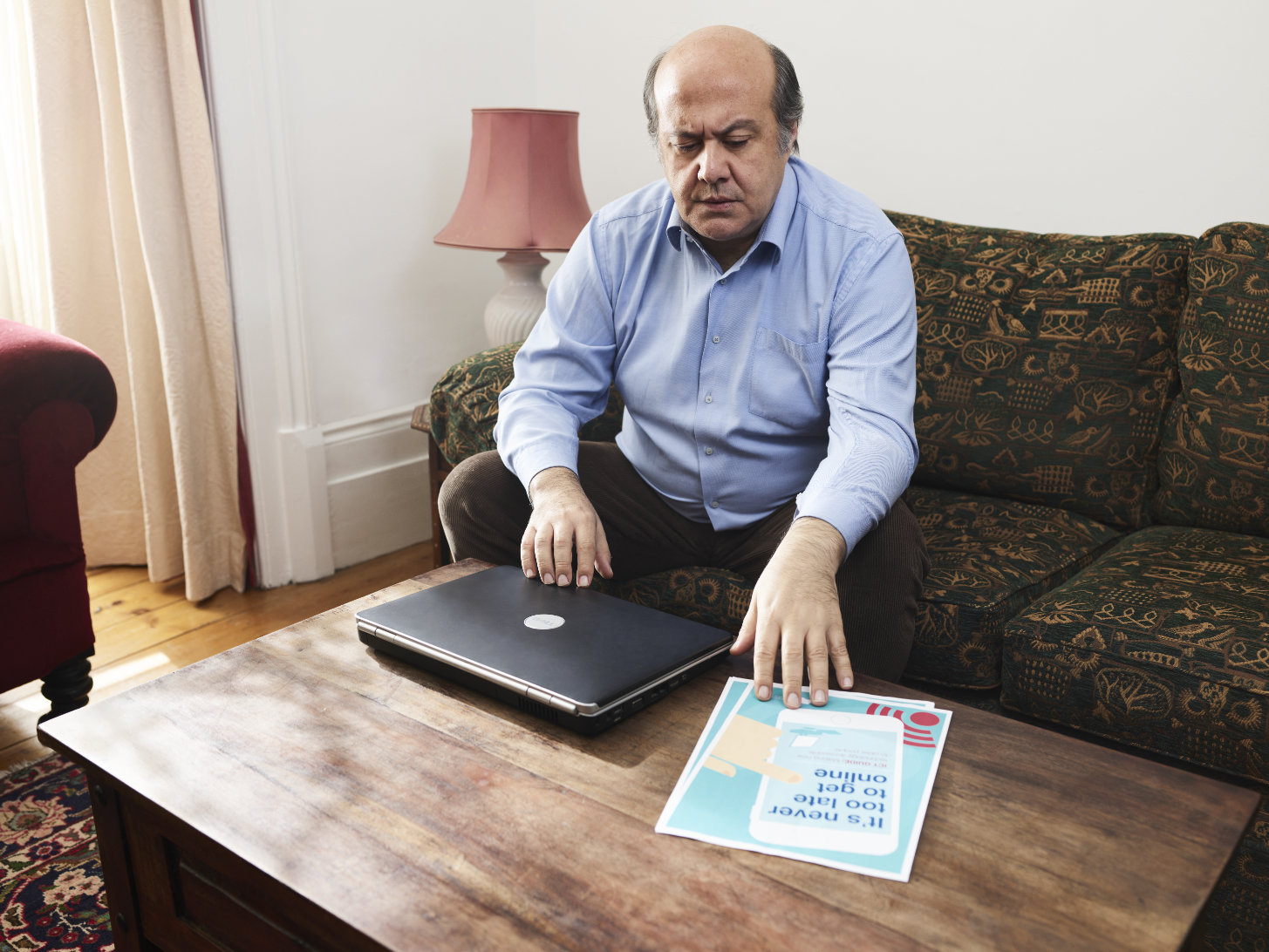
New Vodafone research reveals socio-economic ‘digital divide’ impacts people's life chances.
A report from Vodafone and WPI Strategy, launched today, reveals that digital literacy is becoming as important as reading and writing for young people’s future life chances.
The report calls on the Government, businesses, charity partners and civil society to work together to address the impact of the digital divide.
The report – No One left Behind, the UK’s Digital Divide in 2021 – reveals how the ‘digital divide’ – defined as those who have ready access to technology and the internet and those who do not – is no longer confined to older people or those living in areas with poor internet connections, but instead impacts those who are already at a disadvantage, both financially and socially.

The report highlights that the detrimental impact on this group has been particularly pronounced during the pandemic, when the internet has been essential for everyday tasks, including accessing public services, online shopping and banking, working from home, and communicating with friends and family.
Digital literacy is essential to the life chances of everyone in the UK
(Ahmed Essam, UK CEO, Vodafone)
Results from independent polling1 of 1,004 residents in May 2021 reveal new insights into the state of the digital divide in the UK. Key findings include:
- Nearly 1 in 4 people (23%) from the lowest household incomes said they are not confident using a search engine to access government services or apply for a new passport, compared with just 5% in the richest households. This suggests the most vulnerable in society are at risk of not being able to access essential support, which is increasingly only accessible online.
- Two-thirds of people seeking employment at the time of the research (63%) said they would benefit from digital skills training, compared to 36% of the general population. This suggests that employability – or the ability to access employment – may be directly linked to digital skills.
- Almost a third of respondents (28%) described their current level of digital skills as basic. And nearly twice as many people who were not working (59%) than working (35%) said they were not confident using more advanced software functions such as inserting tables, using excel formulae or adding graphics to documents. This suggests that improved digital skills are required to further advance job prospects.
- Almost a third (29%) of respondents have had to share a device during the past year – meaning that families with multiple children in different year groups had to decide which online lessons their children should attend, or choose between their own work and their child’s education.
The findings suggest that the digital divide can have a significant long-term impact on people’s life chances, affecting their ability to:
- attend online lessons and assessments
- build a compelling CV
- apply for jobs
- and gain the necessary digital skills for many of today’s jobs.

The report calls on the government to conduct additional targeted research to identify who precisely is being adversely impacted by the digital divide, and to create a new cross-departmental task force to agree goals on how to tackle the issue. It suggests one outcome might be a devices and data voucher scheme to ensure that those most vulnerable in society do not face digital exclusion.
The report follows the launch of the Vodafone and Discover Digital programme which rolled out across the UK last month, and digital skills training to some of the most disadvantaged young people in the UK: those who are not in education, employment or training (NEET).
As a result of the 12-month programme, 3,000 young people aged 16-24 will gain practical and useful support, including on how to apply for jobs and manage money online and about online safety. They will also have access to advanced courses in coding.
Ahmed Essam, CEO, Vodafone UK, said: “The consequences of living without connectivity or the skills needed to access digital services are huge.
“Digital literacy is essential to the life chances of everyone in the UK. Access to technology, connectivity and the digital skills needed for many of today’s jobs is critical.
“At Vodafone we have put tackling digital inclusion at the heart of our business with our commitment to connect one million people by the end of 2022.
“We call on the Government, businesses, charity partners and civil society to work together to create a blueprint to address the digital divide once and for all.”

Michelle Lee-Izu, Barnardo’s Co-CEO (interim) said: “Today, technology and connectivity are absolutely essential for children and young people, so they can access work, education, healthcare and keep in touch with family and friends.
“Young people who are digitally excluded face huge barriers that can hold them back from achieving their goals. The pandemic has highlighted both the importance of digital communication but also the scale of digital exclusion, with the most vulnerable children, young people and families most likely to be living without technology or unable to afford data.
“We’re really pleased to be working with Vodafone on our Discover Digital programme, which provide digital skills training to 3,000 vulnerable young people in our services, giving them a vital helping hand on their journey to employment.”
Rt Hon Rob Halfon MP, Chair of the Education Select Committee, said: “The COVID-19 pandemic has exposed the Berlin Wall between the ‘haves’ and the ‘have nots’. The digital divide cannot be fixed by merely handing out laptops and we need a radical plan to safeguard those most disadvantaged.
“I welcome the recommendations made in this report and they should be seriously considered by the government and in particular the Department of Education so that we can pull down the wall that is hindering those most disadvantaged in society.”
Julian Knight MP, Chair of the DCMS Select Committee and Chair of the APPG for New and Advanced Technologies, said: “It is now clearer than ever that digital skills and the ability to be connected is a vital part of our day-to-day lives. The pandemic has shown how all of us rely on the online world to stay connected as school children had their lessons online, parts of the workforce worked remotely and we used the internet to stay connected to loved ones.
“I welcome the report for opening up the discussion on improving digital skills and access so that we ensure that no one is left behind now and the future workforce is equipped with the necessary digital skills.”
Vodafone has a range of projects underway to tackle digital exclusion and connect one million people by the end of 2022. Find out more here.
Download the report, No One left Behind, the UK’s Digital Divide in 2021 here.
– ends –
Notes to editors
Vodafone has a range of projects under way to tackle digital exclusion and connect one million people by the end of 2022. These include its recent charities.connected initiative, Buy One Give One and the Great British Tech Appeal.
It has also partnered with Global, the media and entertainment group, on a six-month campaign to raise awareness of digital exclusion and inspire the nation to get involved to help those living without devices and connectivity.
These initiatives follow Vodafone’s schools.connected programme in 2020, which gave 350,000 SIM cards to 9,000 schools and colleges across the UK to help pupils access online learning while schools were closed during the pandemic.
Savanta Comres carried out a nationally representative poll of 1,004 UK residents (18+) in May 2021 to support this report.
About WPI Strategy
WPI Strategy is one of the UK’s leading political communications consultancies, with a track record of delivering high impact public affairs campaigns. We offer senior strategic counsel and work extensively with our sister company, WPI Economics, to ensure that campaigns are underpinned by evidence-based content.
1 Savanta Comres, May 2021
Stay up-to-date with the very latest news from Vodafone by following us on Twitter and signing up for News Centre website notifications.




